A Complete Guide to Dental Veneers: Everything You Need to Know
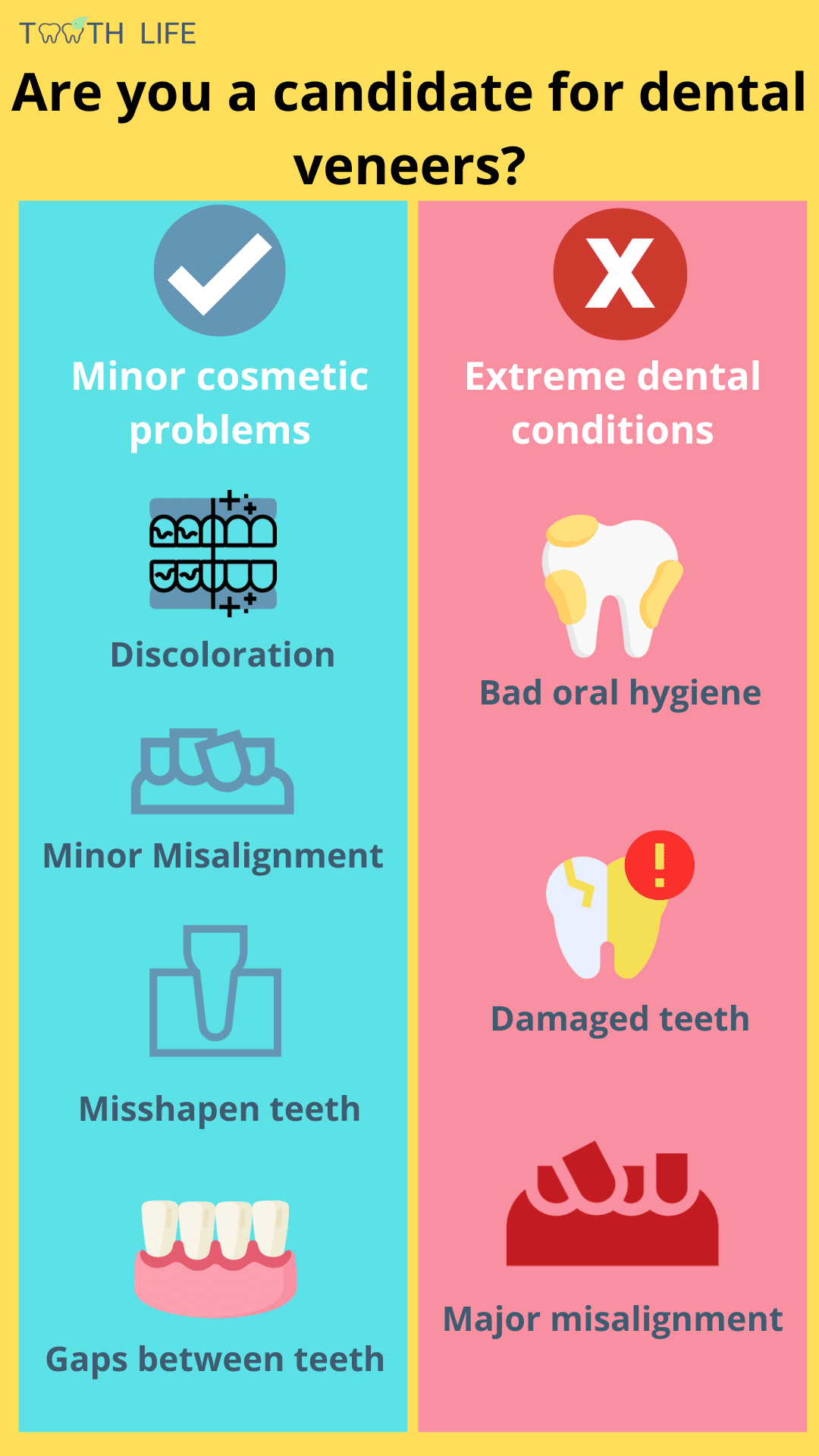 Dental veneers are a popular cosmetic treatment that can completely transform the look of your smile.
Dental veneers are a popular cosmetic treatment that can completely transform the look of your smile.
In this guide, we’ll break down everything you need to know—what veneers are, how they work, the different types available, and the pros and cons to help you decide if they’re right for you.
In this article:
How Do Dental Veneers Work?
Are You a Good Candidate for Dental Veneers?
When Are You Not a Candidate for Veneers?
Pros and Cons of Dental Veneers
Types of Dental Veneers:
How to Take Care of Your Dental Veneers?
Are There Any Better Alternatives to Veneers?
How Do Dental Veneers Work?
Dental veneers are thin, tooth-colored shells, made from a tooth-colored material called ceramic, that are placed over the front surface of your teeth.They’re custom-made to fit perfectly, allowing you to improve the size, shape, color, and even the length of your front teeth.
Before placing veneers, your dentist will gently trim a small amount of enamel from your teeth—usually less than 1mm. This step is important to create enough space for the veneers to bond properly and look natural.
Unlike crowns, which cover the entire tooth, veneers only cover the front. This makes them one of the most conservative yet highly cosmetic dental solutions.
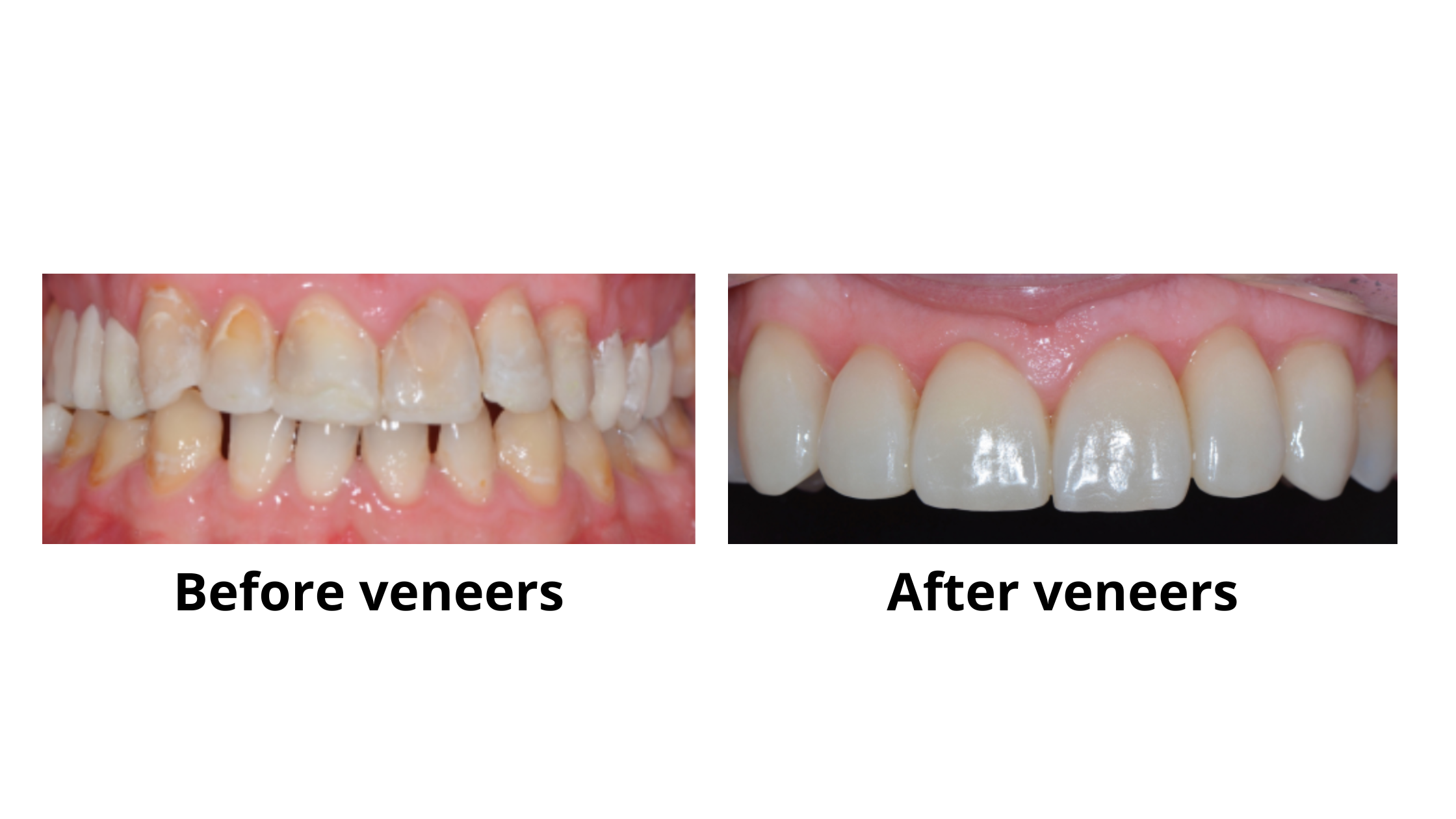
Are You a Good Candidate for Dental Veneers?
Most people can be good candidates for dental veneers—as long as their teeth are relatively healthy. That’s because veneers need a solid layer of healthy enamel to bond properly.Veneers are a great option if you have minor imperfections like small cracks, stains or discoloration, slight misalignment, or gaps between your teeth. As long as your enamel is strong and there’s enough of it, veneers can deliver beautiful, long-lasting results.
Here are some of the most common situations where dental veneers might be the right choice:
1. Discolored teeth
If your teeth are stained or discolored—and whitening treatments haven’t worked—veneers can be a great solution. Once bonded to your teeth, they can conceal stains, providing an instant improvement.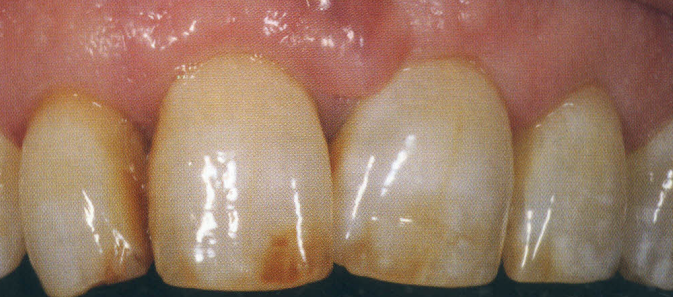
2. Misshapen teeth
Veneers can reshape teeth that are too small, too large, or uneven. They can give your teeth a more natural appearance and even proportions.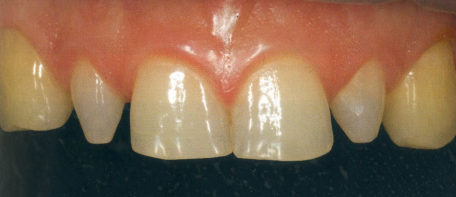
3. Mild Misalignment
If your front teeth are mildly crooked or overlapped and wearing an orthodontic appliance isn’t an option, veneers can be the perfect solution. They can save you from years of wearing braces.4. Gaps between teeth (diastemas or black triangles)
Veneers can also close small gaps between teeth, including black triangles near the gumline. These gaps can look very unsightly and are one of the most common reasons people ask for cosmetic dental treatments.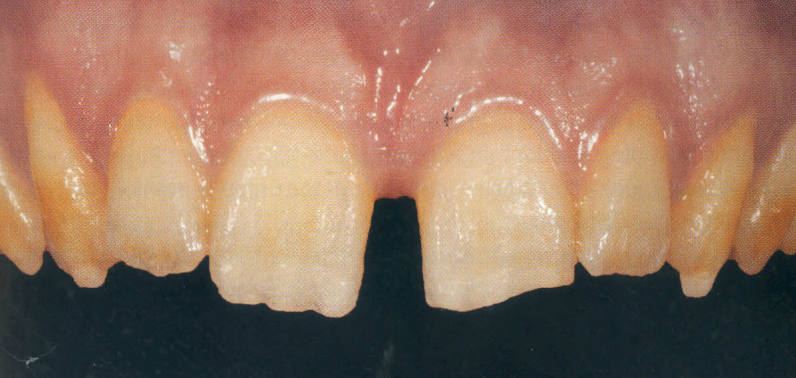
5. Chipped or Fractured Teeth
If a front tooth is chipped, cracked, or slightly broken, veneers can restore its shape and strength while blending in naturally with your other teeth.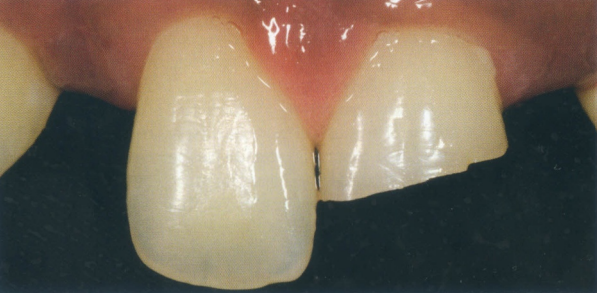
When Are You Not a Candidate for Veneers?
Veneers may not be suitable if your teeth are severely decayed or damaged, have structural defects, or if the enamel is worn down.In these cases, there may not be enough healthy enamel to properly support the veneers. Bonding veneers to damaged surfaces can cause them to come off prematurely and fail.
Here are some common situations where veneers may not be the best option:
1. Teeth Grinding or Clenching
If you grind or clench your teeth (a condition known as bruxism), veneers may not be the best choice. The constant pressure can cause them to crack, chip, or wear down over time.2. Severe Dental Crowding
When teeth are significantly misaligned or overlapping, veneers might not look natural and can even make the teeth appear bulky. In such cases, orthodontic treatment—like braces or clear aligners—may be a better first step.3. Damaged or Weakened Enamel
Veneers require a healthy layer of enamel to bond to. If your enamel is worn down, decayed, or damaged, your dentist may recommend other solutions such as crowns or fillings instead.4. Poor Oral Hygiene
Maintaining good oral hygiene is essential for the long-term success of veneers. If you don’t brush and floss regularly, or if you have gum disease or active cavities, veneers may not be suitable until these issues are addressed.5. Extensive Tooth Decay
Veneers aren't designed to fix badely decayed teeth. If you have large cavities, your dentist may suggest other treatments like fillings, crowns, or even a root canal, depending on the severity of the damage.Pros and Cons of Dental Veneers
| Pros | Cons |
|---|---|
| Can improve the appearance of teeth | May not be suitable for severely damaged teeth |
| Can correct uneven spacing and alignment | May require replacement over time |
| Can last for many years with proper care | May increase tooth sensitivity |
| Can provide instant results | Risk of fracture |
| Less invasive than some other cosmetic treatments | Requires good oral hygiene habits to maintain |
Pros
- Compared to crowns, veneers require less removal of healthy tooth structure, preserving more of the natural tooth.
- Compared to tooth whitening treatment, veneers can provide a more significant and longer-lasting improvement in tooth color and appearance.
- Compared to orthodontic treatment, veneers can provide a quicker and more effective solution for minor to moderate dental misalignments.
Cons
- Like most dental treatments, veneers aren’t permanent. They typically last between 5 to 15 years, depending on how well you take care of them. After that, they may need to be repaired or replaced.
- Veneers can be more expensive than other options.
- Placing veneers requires removing a layer of enamel from the tooth, which can make the tooth more sensitive and may increase the risk of future decay or damage.
- Veneers can be prone to fracturing or getting damaged from chewing hard foods or from injury to the mouth.
2 Most Common Types of Dental Veneer (with Pros and Cons of each)
1. Composite Veneers
Procedure
Composite veneers are built directly on your teeth and can usually be completed in just one session.First, your dentist will choose a shade that matches your natural teeth.
Next, the teeth are gently prepared by lightly roughening the outer surface.
Then, the composite resin is applied and shaped to achieve the desired size and contour.
Finally, the material is cured, finished, and polished for a smooth, natural-looking shine.
Pros
Composite veneers are less expensive than porcelain veneers and can be completed in a single dental visit. They are also easily repairable if damaged and can be removed and replaced with little to no damage to the natural tooth.Cons
Composite resin veneers are not as durable as porcelain veneers and may require more maintenance over time. They are also more prone to staining and discoloration and may need to be replaced more frequently.2. Porcelain Veneers
Procedure
Porcelain veneers usually require two dental visits.During the first visit, the dentist will remove a thin layer of enamel from your teeth and take an impression to send to a lab. This ensures the veneers are custom-made to fit your front teeth perfectly.
During the second visit, the dentist will bond the veneer to your teeth using a special adhesive.
Pros
Porcelain veneers are highly durable and can last up to 20 years with proper care. They are also highly resistant to staining and discoloration and can provide a natural-looking and long-lasting result.Cons
Porcelain veneers are often more expensive than composite resin veneers and require more time and effort to complete. Additionally, they may require more tooth structure to be removed during the preparation process, making them a more irreversible procedure than composite resin veneers.| Composite Veneers | Porcelain Veneers | |
|---|---|---|
| Pros |
|
|
| Cons |
|
|
How to Take Care of Your Dental Veneers?
Taking care of your dental veneers is important to ensure they last as long as possible and maintain their appearance. Here are some tips you can follow:- Practice good oral hygiene: Brush your teeth twice a day with a soft-bristled toothbrush and fluoride toothpaste. Clean between your teeth daily (floss, interdental brush, or water flosser) to remove plaque and debris from these hard-to-reach areas.
- Avoid Hard or Sticky Foods: Try not to bite down on hard objects like ice, hard candies, or fingernails. These can crack or chip your veneers. Sticky foods can also weaken the bond over time, so it's best to be cautious.
- Wear a mouthguard: If you play sports or grind your teeth at night, consider wearing a mouthguard to protect your veneers from damage.
- Visit your dentist regularly: Schedule regular dental checkups to spot and fix any issues early on.
- Limit Stain-Causing Foods and Drinks: Porcelain veneers are more stain-resistant, but composite veneers can discolor easily over time. To prevent this, try to limit foods and drinks like coffee, tea, red wine, and avoid tobacco products whenever possible.
Are There Any Better Alternatives to Veneers?
Depending on your situation, some alternatives may be more suitable than veneers. Before committing, it’s always worth considering all your options, which include:1. Teeth whitening:
If your main concern is stained or discolored teeth, professional teeth whitening might be the best option. It can effectively remove stains and brighten your smile while preserving your natural enamel.Professional whitening treatments also deliver fast results and are generally less expensive than veneers.